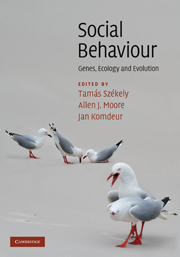Profile: Undiminished passion
Published online by Cambridge University Press: 05 June 2012
Summary
My career in sperm competition has been a roller-coaster ride, energised by a number of particularly special moments. One occurred while I was studying guillemots Uria aalge on a group of uninhabited islands off the coast of Labrador in the early 1980s. Surrounded by sea-ice, magical auroras, humpback whales Megaptera novaeangliae and thousands of promiscuous birds, this was a wonderful study site. Plotting the results from my notebook at the end of one day, I became aware of what at that time seemed like a remarkable emerging pattern: extra-pair copulations were occurring exactly at the time in a female's cycle when they were most likely to result in fertilisation. It was one of those extraordinary moments when it was clear that everything was going to work out. Not only would this be (at that time) one of the most detailed studies of extra-pair behaviour in birds, it would also suggest that extra-pair copulations were adaptive (Birkhead et al. 1985). DNA fingerprinting was still a few years in the future, so it would be a while before we knew how this pattern would impact on fitness, but the behaviour was clear, and at the time my results seemed tremendously exciting. Importantly, they also raised many new questions. My obsession with seabirds, islands and sex, however, had started long before I went to the Arctic.
- Type
- Chapter
- Information
- Social BehaviourGenes, Ecology and Evolution, pp. 5 - 8Publisher: Cambridge University PressPrint publication year: 2010



